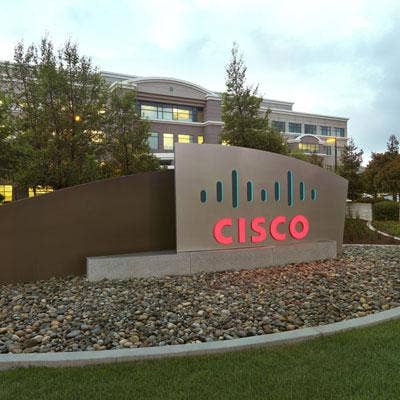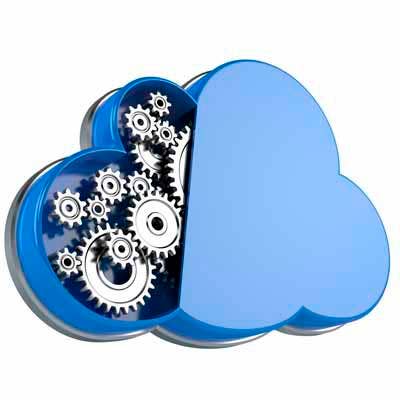VeloCloud CEO On Why 'Power Is Shifting' In SD-WAN Market, Cisco-Viptela Impact, And Market Consolidation Ahead
'The Power Is Shifting'
One of the rising stars in the growing software-defined WAN space is Mountain View, Calif.-based startup VeloCloud. In an interview with CRN, VeloCloud CEO Sanjay Uppal said all competitors fall to the wayside when it comes to SD-WAN as a Service.
"As things shift into more white-box and commodity hardware with software running as a service on top, the power is shifting," said Uppal. "The move is afoot in terms of the power shifting to the buyer and they want SD-WAN as a Service, not SD-WAN as just another box. … No longer are people going to be locked in to custom hardware and proprietary platforms."
Uppal also spoke about the impact of Cisco's $610 million acquisition of SD-WAN competitor Viptela and where he believes market consolidation will happen.

What differentiates VeloCloud from the rest of the SD-WAN market?
The one thing that is clearly different about VeloCloud is that we run SD-WAN as a Service. We run it as a service ourselves. We have 27 locations around the world where there are points of presence [in which] our software is located. We sell it in terms of a consumption model to the channel, then the channel provides it to the end customer. There is nobody else who is running SD-WAN as a Service. There are people who are either just providing a product or providing software or, in some cases more recently, they're just announcing a cloud gateway. Right front the get-go, we had SD-WAN as a Srvice run from the cloud and that is clearly distinguishing [us] from other folks.

How is SD-WAN as a Service driving revenue growth for VeloCloud and its channel?
If you go to an enterprise whether it’s retail, banks, insurance – what those CIOs are interested in is what the business result is going to be. They're interested in the ROI they're trying to drive. We constructed our SD-WAN as a Service based on those outcomes. We did not construct it on the basis of, 'This is the highest-performance box' or 'This is a piece of software that integrates with something else.' We look at what is the outcome that the CIO is going after and then all of the architecture and programs that we put in place for the channel really support that.
It allows us to go to the MSP and service provider say, 'We have a running system with over 700 enterprise customers. … We can train you on how to run this service, how to create demand for this service, how to train your people for it, how to do the logistics and support.' That's what the channel loves.

What are your thoughts on Cisco's acquisition of SD-WAN competitor Viptela?
Cisco is continuing on their path of providing an on-premises solution and so Viptela bolstered that. They certainly have some segments they’re going after who like that type of solution, but the long-term architectural play is moving functionality to the cloud and running it as a service. That is the long-term architectural play that we think is going to win – not just in the SD-WAN space today, but even when you incorporate security services or analytics services or [the Internet of Things]. All of this will [lead] to an architecture [that] is pushing services into the cloud. That is not what the Cisco-Viptela acquisition was all about. In my mind, it was more of a defensive move in terms of bolstering what they could do in their enterprise accounts.

How do you see SD-WAN technology maturing and what vendors will survive?
SD-WAN is maturing to become a platform. SD-WAN is an abstraction layer tied to the complexity of all the transport -- everybody agrees with that, and we think our abstraction layer is better than anybody else's. SD-WAN is a cloud service. Not everybody agrees with this, but now the model of cloud services is really coming to bear.
We think of the SD-WAN ecosystem … it is not a proprietary approach. We are going to be pushing interoperability between these solutions. We're taking that proactive stance as a smaller company saying how these virtual services are going to work with one another. … When you look at an enterprise and how they consume cloud-based services, they want to make sure all of these services work well and interoperate with each other. This idea of federation is going to become quite important. Federation in the SD-WAN market, particularly using the cloud, is going to be quite critical.

Are the vendors like Cisco ready for an SD-WAN federation and interoperability?
The power is shifting. As things shift into more white-box and commodity hardware with software running as a service on top, the power is shifting. You see that Cisco is moving a portion of their box revenue into an annual recurring revenue stream and their recognition that cloud services are going to be there. They have all the trouble that an incumbent has, which is to protect their current revenues, but they're a bunch of very smart people at Cisco. The move is afoot in terms of the power shifting to the buyer and they want SD-WAN as a Service, not SD-WAN as just another box. When that happens, the providers will not really have that much of a choice.

So vendors won't be able to keep customers as close to the vest as before?
No longer are people going to be locked in to custom hardware and proprietary platforms. That move started before SD-WAN, but it's getting accelerated with SD-WAN. The power is shifting to the buyer as well as to the channel partner – particularly the large ones. This democratization is going to happen. Everyone else will have to fall in line.

Where do you see market consolidation in the next three to five years?
There is space for a few players that will emerge as leaders in Network as a Service or SD-WAN as a Service delivered from the cloud. This is an entirely separate and new segment from providing boxes. We think we're the lead in this.
In the category of people providing SD-WAN as another box or a better box, there will definitely be some consolidation. There are many players out there providing SD-WAN boxes and at some point interoperability will happen, then the weaker ones will fall out or get acquired. But I also see an expansion of the market. From the time we started [VeloCloud] to today, the potential addressable market has grown in some ways even four-fold. It's a lot bigger than what we even thought when we started.

How should channel partners view service providers in the SD-WAN market?
They can view the service providers as partners. When you look at the entire solution you need to bring to bear, there's clearly the transport layer -- which we don’t provide and the channel partner usually does not provide – so it's really the service provider that needs to provide that. You do have channel partners who will aggregate transport links from several service providers and provide them as one.

Do you see competition between MSPs and service providers?
There will be cases of MSPs and service providers going after the same deal, but what we found is that there's few of them. That's because the enterprise usually dictates it. The enterprise says, 'I work with my MSP and they do my firewall as a service, my IT. These are the people I trust for my virtual services.' Other folks say, 'I really trust my service provider.'
We've seen more of a symbiotic relationship rather than a direct competition. There have been a few cases [where] there has been competition, but it's more a symbiotic case.

You partner with small and larger service providers. What's VeloCloud's partnering strategy?
We divide them into three buckets. There's service providers who have facilities so they have points of presence – the Vonages, Windstreams, EarthLinks, AT&Ts, NetFortrises – facilities-based service providers. Then we have MSPs that provide services to the enterprise. There's a sliver [that] are cloud application providers -- for example, people who provide unified communications as a service. The third category is ecosystem partners, which are technology partnerships that help the overall solution for the enterprise.

Are you looking to expand your channel partner base?
We are a 100 percent channel company. We don’t do anything direct, unlike most of our competitors. The channel is an extension to this company.
Independent of SD-WAN, there's a move afoot in the IT space to provide more services so that the outcome the CIOs [asked for] gets done. The train has left the station on this. We are trying to jump onto this train and provide Network as a Service and we want partners in it with us. We are always out there looking for channel partners to come in.

What type of solution providers are you looking to on board?
Because this is Network as a Service, this actually makes sense for channel partners who are not just deep in the networking area, but they could be deep in the cloud, or virtualization or IT as a service. … We're expanding the scope of the channel partners out there to go beyond just pure networking channel partners. We're always looking at the folks looking to push the envelope. We're always constantly looking for channel partners looking to add a new spear to their portfolio.T he enterprise is looking for people who are creative and innovative to get the outcomes they want.

Why should channel partners be pumped about VeloCloud?
We are now crossing 700 enterprise customers, even though this is the beginning stage of where the market is taking off. The enterprise is clearly willing to buy. There's plenty of room for individual channel partners to go mining in their own territories. So in the short span of three years, to cross 700 enterprise customers with 140 channel partners, I think the execution is clearly there.